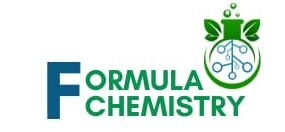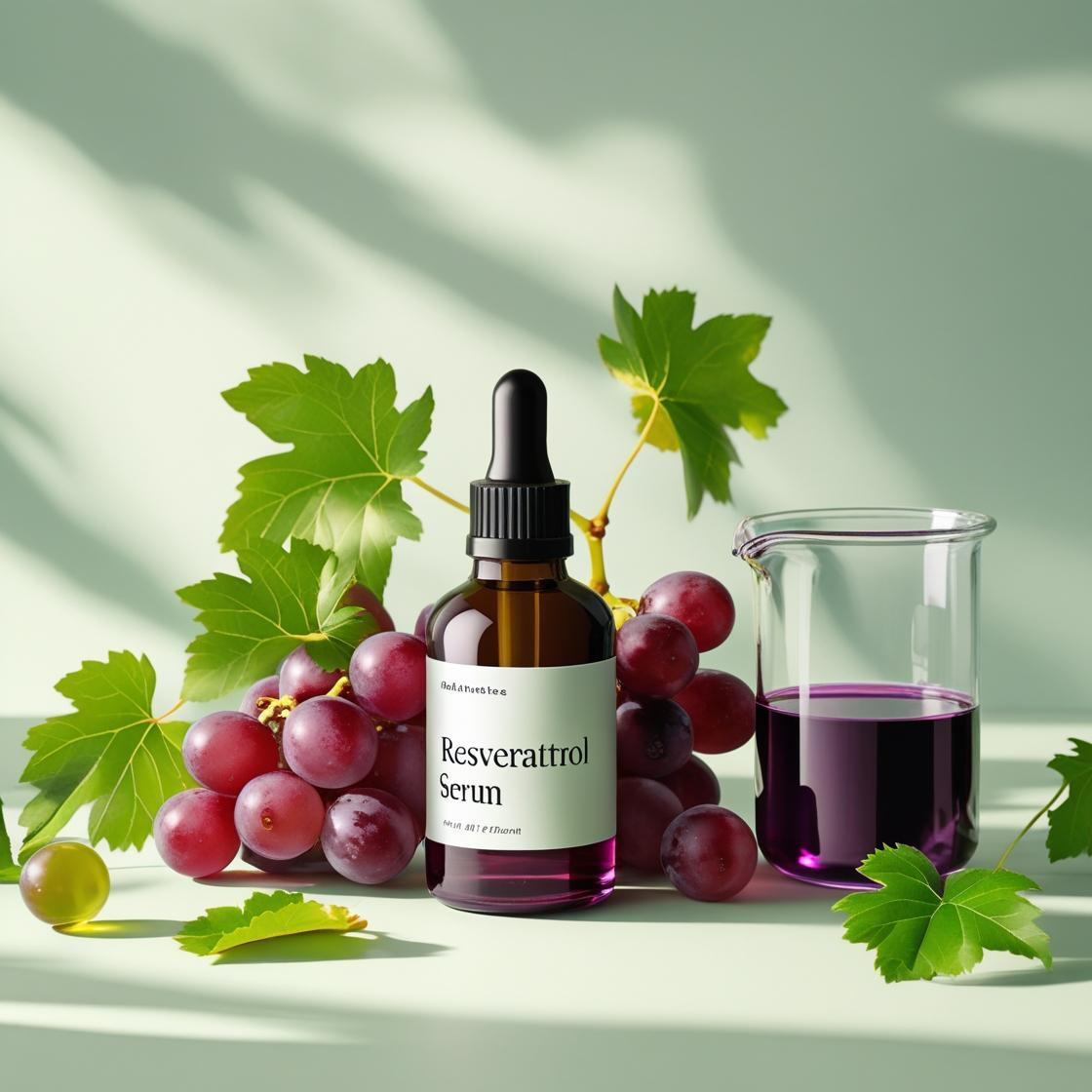CAS number 501-36-0
INCI name Resveratrol
Resveratrol is a natural polyphenol found in various plants, including grapes, berries, and peanuts. In cosmetics, it is value for its antioxidant and anti-inflammatory properties, which help shield the skin from environmental damage and support a more youthful appearance. This powerful ingredient is believe to enhance skin hydration, elasticity, and firmness by promoting collagen synthesis and preventing the degradation of collagen and elastin fibers. Additionally, resveratrol may offer anti-aging benefits, such as minimizing the appearance of fine lines. Its chemical formula is C₁₄H₁₂O₃.
Purpose
Resveratrol is a powerful antioxidant that helps protect the skin from oxidative stress caused by environmental factors like UV radiation and pollution. By neutralizing free radicals, it reduces damage, supports skin resilience, and promotes a healthier, more youthful appearance. Its skin-protecting properties also help strengthen the skin barrier, prevent premature aging, and soothe irritation.
Origin
Resveratrol can be obtain either through chemical synthesis or by extracting it from natural sources like grapes, berries, and Japanese knotweed. The extraction process generally involves crushing and fermenting the plant material, followed by purification using techniques such as chromatography. Alternatively, it can be produce through microbial fermentation using genetically engineered bacteria or yeast.
| Feature | Description |
| Name | Resveratrol |
| Type | Polyphenol (stilbene compound) |
| Source | Found in grapes, red wine, berries (blueberries, cranberries), peanuts, and Japanese knotweed |
| Color | White to pale yellow |
| Odor | Odorless or slight characteristic smell |
| Solubility | Insoluble in water |
| PH | 3.3 to 6.0 |
| Concentration | 0.5% to 5% |
| Boiling point | 449.1°C |
| Physical state | Fine crystalline powder |
Chemical Structure & Isomeric Forms
Resveratrol is a stilbene compound (C14H12O3) classified as a phytoalexin, meaning it is a natural defense molecule produce by plants in response to stress, UV radiation, and fungal infections. It exists in two isomeric forms: trans-resveratrol and cis-resveratrol. The trans form is the most biologically active and stable, while the cis form is less potent and forms upon light or heat exposure. This structural characteristic affects its stability, efficacy, and formulation considerations in various applications.
Bioavailability Challenges & Advanced Delivery Systems
Resveratrol has low oral bioavailability due to its rapid metabolism in the liver and intestines, where it undergoes glucuronidation and sulfation, making it difficult for the body to retain and utilize. To overcome this, several advanced delivery systems have been develope such as liposomal encapsulation, nanoemulsions, micelles, and cyclodextrin complexes, which enhance its absorption and bioactivity. Modified forms like resveratrol-3-O-glucoside (piceid) and prodrug derivatives also improve its stability and solubility.
Photostability & Degradation Sensitivity
Resveratrol is highly sensitive to light, oxygen, and heat, leading to rapid degradation when exposed to air or UV radiation. This instability poses challenges in skincare formulations and supplements, requiring protective encapsulation, dark-colored packaging, and refrigeration to maintain its potency. In cosmetic formulations, it is often stabilize using antioxidants like vitamin E, ferulic acid, or lipid-based carriers to extend shelf life and effectiveness.
Antioxidant & Anti-Aging Properties (SIRT1 Activation)
Resveratrol is a powerful antioxidant that helps neutralize free radicals, reducing oxidative stress and premature aging. One of its most significant biological activities is its ability to activate SIRT1 (Sirtuin 1), a longevity-associated enzyme that plays a crucial role in DNA repair, cellular health, and mitochondrial function. By mimicking the effects of caloric restriction, resveratrol enhances cellular metabolism, reduces inflammation, and slows aging processes, making it a key ingredient in anti-aging skincare and longevity supplements.
Neuroprotective Effects & Blood-Brain Barrier Penetration
Unlike many antioxidants, resveratrol can cross the blood-brain barrier, allowing it to exert neuroprotective benefits. It has been show to reduce amyloid-beta plaque accumulation, a major factor in Alzheimer’s disease, and enhance cognitive function by reducing oxidative stress and neuroinflammation. Its ability to protect neurons, improve memory, and support brain health makes it a promising compound in neurodegenerative disease research.
Cardioprotective & Anti-Inflammatory Benefits
Resveratrol plays a significant role in heart health and inflammation regulation. It reduces inflammation by inhibiting NF-κB, a key regulator of inflammatory pathways, and enhances nitric oxide (NO) production, leading to vasodilation and improved blood circulation. These properties contribute to its cardioprotective effects, reducing the risk of heart disease, stroke, and hypertension. Resveratrol’s presence in red wine is believe to be a contributing factor to the French Paradox, where moderate red wine consumption is associate with lower cardiovascular disease rates despite a high-fat diet.
Skin Benefits: UV Protection, Anti-Pigmentation & Anti-Aging
Resveratrol offers multiple skin benefits, including protection against UV-induced damage, inhibition of melanin production, and promotion of collagen synthesis. It has natural photoprotective properties, helping to reduce sun-induced oxidative stress, making it a valuable ingredient in sunscreens and anti-aging skincare. Additionally, resveratrol inhibits tyrosinase, the enzyme responsible for melanin production, making it effective in brightening the skin and reducing hyperpigmentation. Its ability to stimulate fibroblast activity also contributes to improved skin elasticity, reduced wrinkles, and enhanced hydration.
Hormonal Modulation & Phytoestrogenic Activity
Resveratrol exhibits phytoestrogen-like activity, meaning it can bind to estrogen receptors and exert both estrogenic and anti-estrogenic effects. This makes it of interest for hormonal balance, menopause support, and potential breast cancer prevention. By modulating estrogen receptor activity, it may provide benefits similar to selective estrogen receptor modulators (SERMs), which are use in hormone-related therapies.
Applications of Resveratrol
Cosmetics & Skincare
Resveratrol is widely use in anti-aging skincare, sunscreens, and brightening formulations due to its antioxidant and anti-inflammatory properties. It helps reduce wrinkles, improve skin elasticity, and protect against UV-induced damage. As a natural tyrosinase inhibitor, it is also effective in lightening dark spots and hyperpigmentation. To enhance stability, it is often incorporat into liposomal, nanoencapsulated, or oil-based formulations in serums, creams, and lotions.
Dietary Supplements & Functional Foods
Resveratrol is a popular ingredient in nutritional supplements aimed at anti-aging, cardiovascular health, and brain function enhancement. It is found in capsules, soft gels, powders, and liquid extracts, often combined with other antioxidants like quercetin, vitamin C, or curcumin for improved efficacy. In functional foods, resveratrol is add to energy drinks, teas, chocolates, and fortified beverages, offering potential health benefits in a convenient form.
Pharmaceuticals & Medicinal Research
Resveratrol is being studied for its role in treating neurodegenerative diseases (Alzheimer’s, Parkinson’s), cardiovascular conditions, cancer, and metabolic disorders. Due to its anti-inflammatory, anti-cancer, and cardioprotective properties, it is being investigated for use in targeted drug delivery systems and combination therapies with conventional medications. Clinical research is exploring its effectiveness in reducing tumor growth, improving insulin sensitivity in diabetes, and protecting neurons in degenerative brain diseases.
Cardiovascular Health
Resveratrol’s ability to enhance nitric oxide production, reduce blood pressure, and prevent arterial plaque buildup makes it a valuable component in heart health supplements. It is often recommended as a natural remedy for improving circulation, reducing cholesterol levels, and supporting vascular function, making it beneficial for individuals at risk of heart disease, hypertension, and stroke.
Neuroprotection & Cognitive Enhancement
As a compound capable of crossing the blood-brain barrier, resveratrol is include in supplements aimed at cognitive health, memory enhancement, and neurodegenerative disease prevention. Research suggests it may help reduce oxidative stress in brain cells, decrease amyloid plaque formation (a hallmark of Alzheimer’s disease), and improve brain function in aging populations.
Cancer Prevention & Adjunct Therapy
Due to its anti-proliferative and apoptosis-inducing effects on cancer cells, resveratrol is being explore as a potential adjunct therapy in oncology. Studies suggest it may slow tumor growth, inhibit angiogenesis (formation of new blood vessels in tumors), and enhance the efficacy of chemotherapy. While not a standalone cancer treatment, its role in cancer prevention and combination therapy is an area of active research.
Metabolic & Weight Management
Resveratrol has show to improve insulin sensitivity, regulate glucose metabolism, and support fat metabolism, making it useful in weight management and diabetes prevention. It is often include in metabolic health supplements to support individuals with insulin resistance, obesity, or metabolic syndrome.
Anti-Microbial & Food Preservation
Resveratrol exhibits antibacterial, antifungal, and antiviral properties, making it a potential natural preservative in food, cosmetics, and pharmaceutical formulations. It helps inhibit bacterial growth, prevent fungal contamination, and extend the shelf life of perishable goods. Its use in food packaging, edible coatings, and antimicrobial sprays is being explore to enhance food safety.

